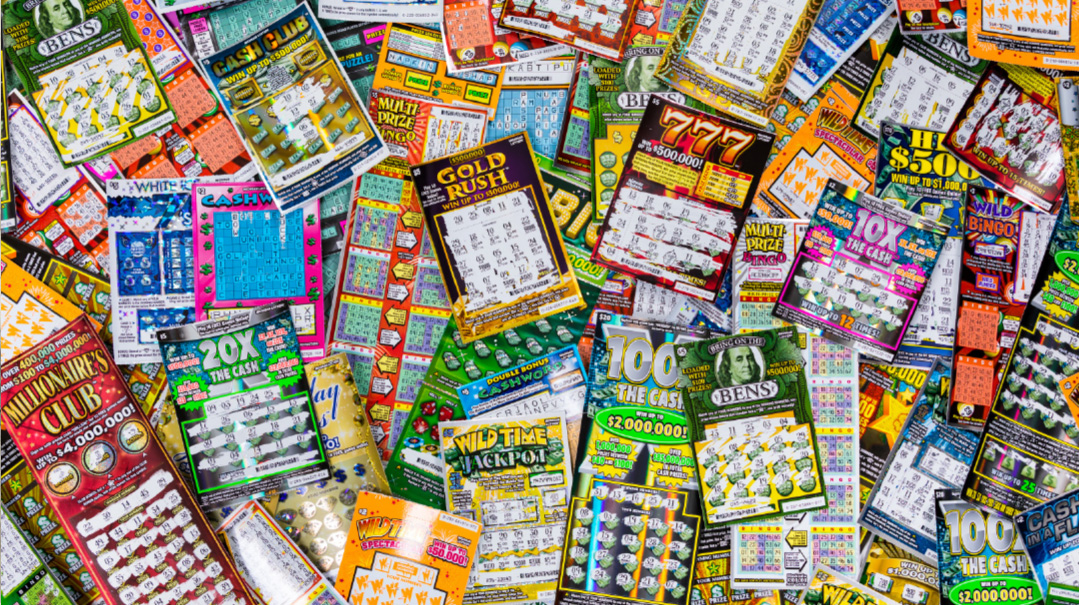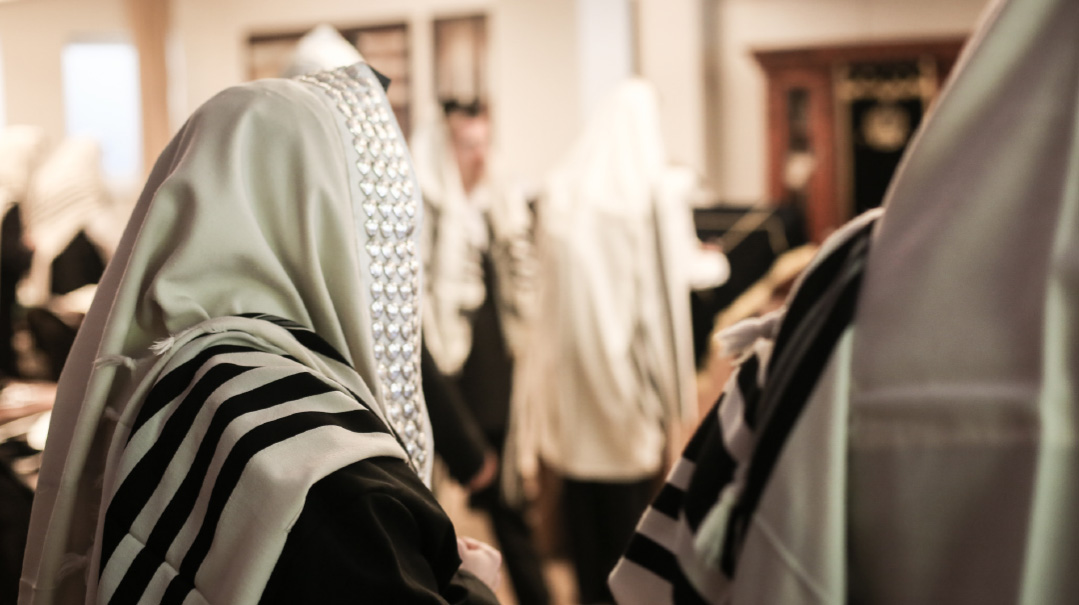Key to Survival
| October 24, 2023The losses are real and the pain is intense, but nothing that is ultimately bad can happen on Shemini Atzeres

W
hen the Russians and Germans divided Poland at the onset of World War II, hundreds of thousands of Jews suddenly found themselves under Communist rule. Faced with the opportunity to take Soviet citizenship, many Jews turned it down; they saw voluntary acceptance of Soviet citizenship as an affirmation of the Communists’ atheist, anti-religious worldview — and therefore as unthinkable. In fury, the Russians rounded up those who refused citizenship and sent them to Siberia.
Rav Itzikel of Pshevorsk advised his chassidim to refuse Soviet citizenship. When he and his chassidim were subsequently sent to Siberia and suffered terribly from the cold and hard labor, the chassidim complained to him, “Why didn’t you let us take citizenship?”
“The day we were sent to Siberia was the 23rd of Sivan,” he told them in response. “This was the same day that Mordechai sent the letters telling the Jews of the Persian Empire that the king had granted them the right to defend themselves against their attackers. It became a day of deliverance and salvation, causing the ‘LaYehudim haysah orah, v’simchah v’sason v’yikar’ that we celebrate on Purim. On such a day, nothing bad can happen.”
Indeed, when Rav Itzikel and his chassidim returned from Siberia and learned that the Germans had killed all the Jews remaining in Vilna, they understood that Hashem had in fact been safeguarding them in the far recesses of the Russian tundra.
The 250,000 Jews who survived this way helped seed and rebuild the postwar Jewish communities across the world. The fate they’d initially perceived as a terrible punishment was in fact the key to their survival, and the survival of Klal Yisrael.
Shemini Atzeres is a far, far greater day than the 23rd of Sivan. Throughout Succos we offer 70 bulls as korbanos for the sake of the nations, in the merit that their needs will be met. On Shemini Atzeres we bring only one bull and one ram, representing the singular relationship between HaKadosh Baruch Hu and Klal Yisrael. On this eighth day, the guests — the other nations — go home, and Hashem is alone with His beloved Jewish nation.
The fact that the war with Hamas broke out on Shemini Atzeres tells us that, without a doubt, great yeshuos and increased kevod Shamayim will eventually result. The losses are real and the pain is intense, but nothing that is ultimately bad can happen on Shemini Atzeres. With time, we will see that only good will come from this.
How, then, are we to view the terrible carnage that took place? That remains in the category of tikkunei neshamos, Hashem’s mysterious rectification of Jewish souls through the various ordeals they endure in this world. This is part of Hashem’s cosmic plan to ensure that no neshamah will be excluded from Olam Haba.
And if we worry about our own worthiness to be redeemed, we can see throughout Tehillim and Tanach how Hashem helps Yidden despite their sinfulness. Ramban in Ha’azinu makes it very clear that the final Geulah is not dependent upon teshuvah. Our positive actions can bring the Geulah more quickly and with less pain, but Hashem will help His children no matter how we act — because at our core, we are a part of Him. Our essence is G-dly; He loves us unconditionally. We are Hashem’s “achosi, ra’ayasi, yonasi, samasi — His sister, His beloved, His dove, His innocent one.”
Maharal asks why Noach is introduced as a “complete tzaddik in his generation” while the Torah tells us nothing about Avraham Avinu. He explains that Noach, as a non-Jew, was chosen and saved from destruction because of the worthiness of his actions. Avraham Avinu, we know, was a greater tzaddik than Noach — but that is not why he was chosen to be the father of the Chosen People. Avraham was the world’s first Jew, and therefore his essence was good. That is why he was chosen: because of his essence, not his actions.
This internal spark of a Jew, which is bonded to Hashem in oneness as His beloved, is revealed on Shemini Atzeres. We can be assured that Hashem will save the Jewish People no matter our worthiness in a war that began on this day.
The Chofetz Chaim predicted the tragedies of World War II. When asked how Jews could save themselves from the oncoming destruction, he answered, “B’Har Tzion tihyeh pleitah,” in Eretz Yisrael we would be safe.
As Hashem’s focus is on Yidden, so is His focus on Eretz Yisrael. “Einei Hashem Elokecha bah, Eretz asher Hashem Elokecha doresh osah” — Hashem’s eyes are on Eretz Yisrael. He constantly inquires as to her well-being.
Just as there exist nations of the world, so there exists lands of the world. Just as there is a Jewish nation, so there is a Jewish land. Eretz Yisrael, the land of Hashem, belongs to Klal Yisrael, the people of Hashem. Hashem protects His people in His land, “ki lo yitosh Hashem es nachalaso.” Hashem does not abandon his nachalah — not the nation or the land. (Note that this should not be seen as condoning the creation of a secular, anti-Torah state during galus.)
At a time when there is so much danger, our most important defense is to have bitachon in Hashem’s salvation. “V’habotei’ach b’Hashem chesed yisovevenu” — as we trust in Hashem, that trust becomes a vessel for His loving-kindness and miracles.
The Slonimer Rebbe of Yerushalayim recently noted that this Tishrei, Hashem allowed us to celebrate very elevated, warm, and inspirational Yamim Tovim. In hindsight, we can see that Hashem allowed us to amass crucial spiritual ammunition before the war — a sign that He is preparing a great yeshuah for us as well.
When Jews are in danger, Hashem dons the mantle of general and He alone defends us. The battle is not one of country against country; it becomes one of Hashem against the forces of impurity. When Hashem waged battle against Mitzrayim, eventually they realized their only resort: “Anusah mipnei Yisrael ki Hashem nilcham lahem — Let me escape from the Jewish People because Hashem is waging war for them.”
America has promised to aid Israel, and we surely appreciate the support they are giving. At the same time, we must remember that Hashem doesn’t need the aid of any nation, ammunition, or army. If America doesn’t help the Jews in our time of need, Hashem will find a different way to save Klal Yisrael from destruction, as He has done throughout the generations, when they tried to destroy us, “V’HaKadosh Baruch Hu matzileinu miyadam.”
Since this is essentially a war conducted by Hashem against tumah, the main keys to victory are our Torah, tefillah, chesed, tikun hamiddos, and teshuvah. We must daven for an increase of kevod Shamayim in the world. Baruch Hashem, Jews in chutz l’Aretz fulfilled the mitzvah of simchah on Simchas Torah, despite the terrible news many had heard. The spiritual simchah that they tapped on the most powerful day of the year will ultimately serve as a zechus of protection.
Along with the power of that simchah, we must also increase our tefillah during this time. When the people of his era asked Shmuel Hanavi to daven for them, he responded, “Chalila li, Heaven forbid that I sin against Hashem by refraining from davening for you.”
From here we learn that davening for Klal Yisrael when they are in danger is not a nice thing to do — it’s a basic obligation, and neglecting it is a severe sin. During these times everyone should daven as much as they can and with as much heart as they can. One heartfelt kapitel said with kavanah is much more valuable than many kapitlach said without feeling.
Rav Mordechai Lechovitcher taught that the three weeks spanning from Rosh Hashanah through Yom Kippur, Succos and Hoshana Rabbah are a preparatory period for the revelation of “Atah hareisa la’daas ki Hashem Hu haElokim” of Shemini Atzeres. Though our teshuvah and tefillah of these weeks, we are zocheh to truly know and experience that Hashem is the only One with power in this world — there is no one and nothing besides Him.
The fact that the war began on this day tells us that Hashem will perform great miracles to save His people and thereby drive home the message that “ein od milvado,” Hashem runs the world and there is no one but He.
May we be zocheh to the Geulah sheleimah very soon, together with all Yidden.
Adapted from Rav Wolfson’s Shalosh Seudos Torah on Shabbos Parshas Bereishis and from a talk encouraging participation in the Boro Park kenes tefillah. Prepared for print by Baila Vorhand.
(Originally featured in Mishpacha, Issue 983)
Oops! We could not locate your form.







